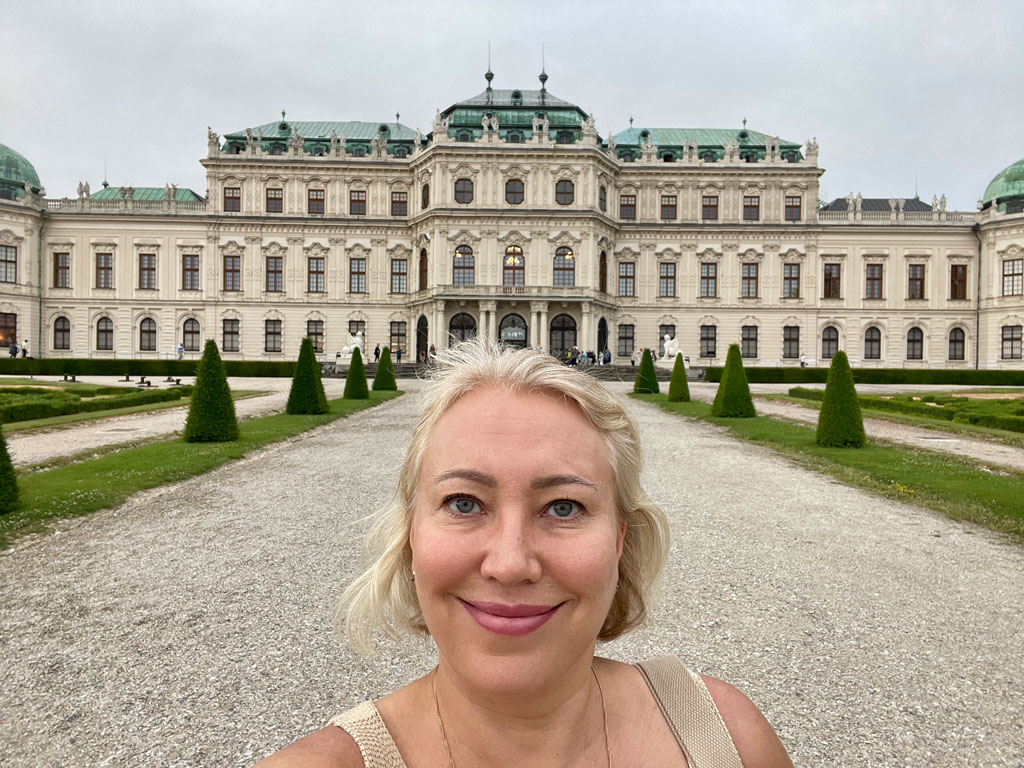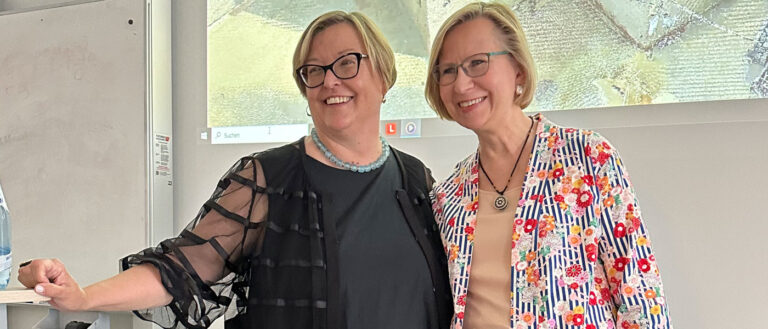Along with PhD student Marina Mandrikova, they break stereotypes to highlight Africa’s role in Byzantine art and culture
For Betsy Bolman, art history chair and the Elsie B. Smith Professor in the Liberal Arts, being awarded the 2023 Tsiter-Kontopoulou Prize was a unique honor.
“It was quite moving to be acknowledged by my peers from around the world,” said Bolman. “Having a platform to talk about the dynamism of African culture during the Byzantine period being equal to that of the rest of the Eastern Roman Empire was a chance that I embraced.”
Given out once every two years, the award signifies important contributions to research in the fields of Byzantine studies (330-1,543 AD), the history of ideas and cultural history. As the recipient of this prize, Bolman was invited to a two-week residency at the Institute of Byzantine and Modern Greek Studies, University of Vienna in June.
In Vienna, she presented her groundbreaking research on the late fifth-century Red Monastery Church in Upper Egypt. Often overlooked, Egypt was a major center of wealth and the arts in society during the Byzantine era. She emphasized that this award stands out because of the opportunity to disprove long-held beliefs that the Byzantine was solely a product of Europe and that Africa was a place for “folk art.”
“For several decades the belief, even amongst scholars, was that Europe was the center of everything to do with society and culture in the Byzantine (late Roman) world,” said Bolman. “I was able to lead open dialogue to help change the narrative around the topic amongst peers in the field.”
Award provides trip to Vienna for PhD student
Bolman was asked to invite a doctoral student to spend a month in Vienna as the Tsiter-Kontopoulou Junior Fellow. She didn’t hesitate to ask her student, Marina Mandrikova, who focused on giving a presentation on her dissertation topic; an exploration of the damned in Byzantine and Slavic monumental painting.

“I was pleasantly surprised to find a very vibrant and interdisciplinary community of scholars,” said Mandrikova. “I received very warm and valuable feedback on my presentation and we had fruitful conversations before and after it.”
Bolman was excited for her student to benefit from the close interaction and collaboration between students, professors and researchers from different fields of study.
“Marina is a brilliant young scholar,” she said. “Seeing her interact with peers and senior scholars was exceptional, and I’m excited to see how it inspires her dissertation and future work.”
Mandrikova found the experience recharged her. “I greatly appreciate the new contacts I made with students and scholars that I will cherish for years to come,” she said.


